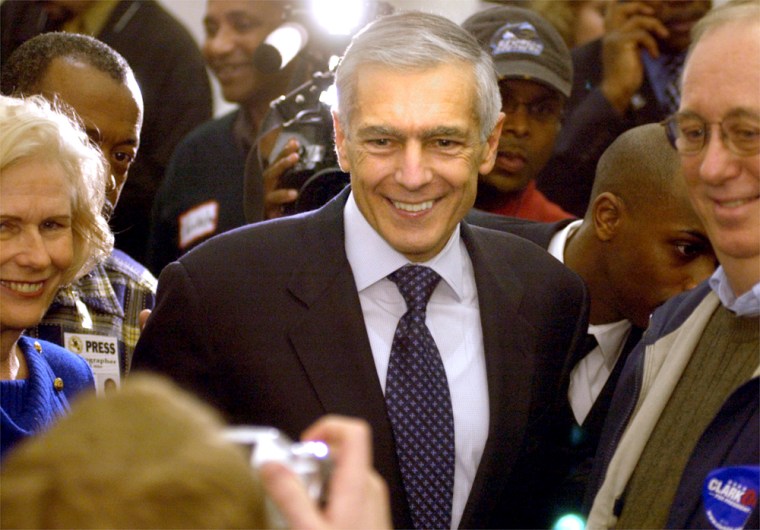The government will give six presidential candidates $15.4 million combined in federal matching funds on Friday, less than half of the amount it divided among presidential candidates during the same period in 2000. Meanwhile former Vermont Gov. Howard Dean's campaign, which is not accepting the federal money, announced that it collected $500,000 at a series of fundraising parties.
The Federal Election Commission certified the first checks on Wednesday for those participating in the presidential public financing system in 2004. The FEC's first checks in 2000 totaled $34 million for eight candidates. In 1996, the amount was $37.4 million for 10 hopefuls.
Wesley Clark, the retired Army general from Arkansas who entered the race in September and months after his rivals, will get a $3.7 million payment, the largest amount of federal matching funds.
That's followed by $3.6 million for Connecticut Sen. Joe Lieberman, $3.4 million for North Carolina Sen. John Edwards and $3.1 million for Missouri Rep. Dick Gephardt. Ohio Rep. Dennis Kucinich will get $736,000 and perennial presidential candidate Lyndon LaRouche will get $839,000.
President Bush, and Democrats Dean and Sen. John Kerry of Massachusetts all opted out of the public financing system, and, therefore, won't receive the taxpayer-financed payments.
The program's first payments will be delivered Friday and will match contributions candidates received from last January through November. Candidates then can apply for additional matching funds once each month.
The FEC said Wednesday that it may not have enough money in the fund come February when the second batch of payments is due to candidates. As a result candidates will receive reduced payments until the fund is replenished by contributions from 2003 tax returns.
Under the program, the government matches the first $250 of each private donation received by primary candidates who accept an overall $45 million spending limit, up to about $18.7 million.
Taxpayers pay for the program by checking a box on their income-tax returns to direct $3 to it.
Each candidate, to qualify, must raise at least $5,000 in each of 20 states in donations of $250 or less and keep detailed contribution records, including donors' names, addresses and employer information.
Dean parties raise $500,000
While Dean has opted out of the federal campaign financing program, his campaign again showed its money-raising and organizational muscle this week, pulling in an estimated $500,000 at more than 1,400 house parties across the country.
Campaign aides said Wednesday that an estimated 22,000 people attended the parties, and an additional 1,675 people dialed in to hear Dean’s conference call to the events. By midmorning, the Dean campaign had raised $14.7 million in the final quarter of the year.
Dean spoke to the parties by cell phone Tuesday night while en route from South Carolina to Vermont. He was joined on the call by former Vice President Al Gore and his wife, Tipper, who introduced the Democratic front-runner.
Dean aides said the 13 house parties in Iowa were a crucial organizational tool in preparing for the state’s Jan. 19 leadoff caucuses. In New Hampshire, the site of the nation’s first primary, 11 parties were planned.
Dean’s campaign announced Monday that he had raised $14 million in the last quarter, far ahead of any of his Democratic rivals. The campaign hoped to send the quarter’s total to $14.8 million with the house parties.
While Dean has outpaced his fellow Democrats, he’s raised less than a third of what President Bush has generated.
